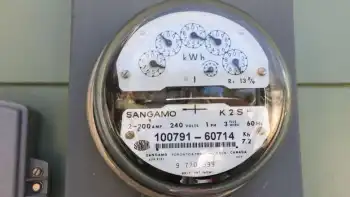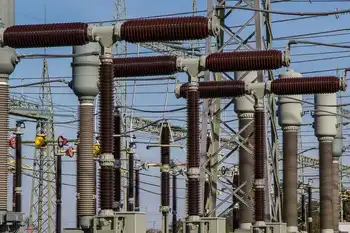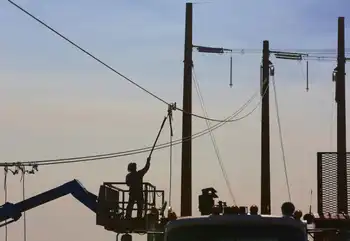Governors, premiers talk energy
By Times Argus Online
NFPA 70e Training - Arc Flash
Our customized live online or in‑person group training can be delivered to your staff at your location.

- Live Online
- 6 hours Instructor-led
- Group Training Available
The lack of action so far on a federal health care bill gave the governors a chance to talk about what their states have done and where they are headed.
But potentially just as important to Vermont, the governors and their Canadian counterparts talked about their trade relationship – based largely on energy including electricity generated at Hydro-Quebec that is exported to Vermont. It was the first time the premiers of Canada's provinces officially joined the governors for part of their meeting. Later the annual reception for governors was hosted by the Canadian embassy, one more way Douglas sought to strengthen the relationship.
Canadian power and whether it is counted as a renewable source of electricity in the United States – and gets the economic benefits that come from that designation – was the first topic brought up at the meeting between Canadian premiers and the governors.
"We sell clean, renewable hydroelectricity to our neighbors," said Quebec Premier Jean Charest. "We should seize that opportunity."
"There should be a recognition that large-scale hydro should be renewable energy. It is renewable energy," he said. (And by the way, "Thank you for an opportunity to be somewhere where there is snow," he concluded.)
Vermont utilities are now negotiating with Hydro-Quebec on new contracts for power. The current contracts, which expire over the next few years, supply a third of the state's needs.
"Whether the next contract is a good economic deal, we are still working on," Douglas told Charest. "I am sure it will be."
Energy dominated the discussion between the chief executives, but it wasn't just about hydroelectricity. Canada produces a huge amount of wind power, and produces and refines massive amounts of petroleum as well.
Holding the chairmanship – as three of the last four governors have – also means his job in the NGA is different, Douglas said during a break between meetings. As the head of the bipartisan group of governors, which takes its official positions by consensus, he is also less vocal in his own views than he would otherwise be, he said.
"Coal-producing states have views on energy that are quite different than mine," Douglas said. But as chairman – a term that lasts until July – "I don't inject my own personal views as much… as tempted as I might be."
The National Governors Association is designed to help state chief executives build relationships, discuss how they deal with common problems and prepare an agenda for lobbying on Capitol Hill.
The role of governors, their shared issues and the fact that the NGA is bipartisan means it is far less political – at least publicly – than the governors' Congressional counterparts. So while there are also meetings of the Republican Governors Association and the Democratic Governors Association to talk political strategy it is – usually – hard to tell by what they say what party those attending NGA are.
The difference in approach when compared with Congress was the source of several jokes by the governors.
"We will be taking off our partisan political hats, which we do better than any organization in the country," said Gov. Joe Manchin of West Virginia.
Gov. Brian Schweitzer of Montana was more pointed in his criticism of Congress, which meets just down the road from where the governors convened.
"In the states we educate, medicate and incarcerate," he said. "In Congress we talk about it."
"The only time they listen to us is when we come to town and, by the way, Congress is out of town," Schweitzer concluded.
Part of that tension comes from perpetual differences between executives and legislators and part of it is equally long-standing differences between state and federal governments.
But some that tension this year also seemed to come from frustration over lack of action in Congress – particularly on the issue of health care.
"I think it is greater now, but I don't think it is restricted only to the governors," Douglas said. "I think there is a lot of concern that Congress is failing to act.
"I did assume we would have a federal bill by now," Douglas said.











